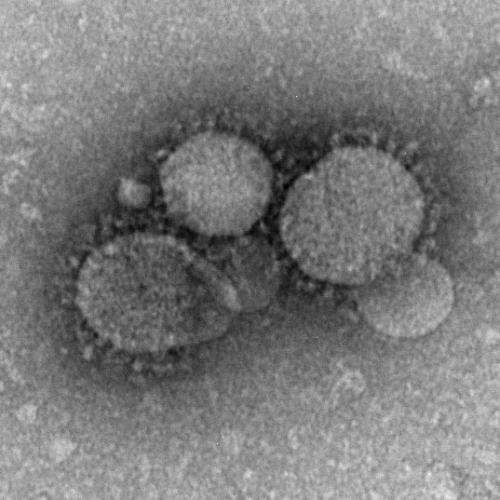Macaque model: MERS coronavirus settles deep in lungs

If rhesus macaques are good stand-ins for humans in studying Middle East respiratory syndrome coronavirus (MERS-CoV), the virus prefers the environment deep in the lungs, a finding that may help explain some features of the disease in humans, according to new research.
The scientists say that in macaques, the virus mainly affects the lower respiratory tract, which may help explain why the human disease is often severe but does not spread very easily from person to person.
The report by researchers from the US National Institute of Allergy and Infectious Diseases, with colleagues from other US centers, France, and Canada, was released online today by the Proceedings of the National Academy of Sciences. The same group reported recently that a combination of interferon and ribavirin improved MERS-CoV outcomes in macaques.
The team, led by Vincent J. Munster, PhD, of the NIAID lab in Hamilton, Mont., inoculated six macaques with high doses of MERS-CoV that was derived from the original 2012 isolate. They found that mild to moderate pneumonia developed quickly but didn't last very long.
"Clinical signs, virus shedding, virus replication in respiratory tissues, gene expression, and cytokine and chemokine profiles peaked early in infection and decreased over time," the report says. Virus amounts in nasal and lung samples were highest on the first day after infection and then dropped, although two of three macaques were still shedding virus after 6 days.
The virus was found in the upper respiratory tract, but it flourished mainly in the lower respiratory tract, especially in the alveoli, the researchers say. They remark that concentration of the virus deep in the lungs may explain why the animals shed the virus in only limited amounts.
"The fact that human-to-human transmission so far seems limited to a few family clusters in Saudi Arabia, the United Kingdom, and Tunisia and nosocomial transmission in Jordan, Saudi Arabia, and France might be explained by the propensity of the novel virus to replicate deep down in the lower respiratory tract," the report states.
It also says that MERS-CoV's preference for the lower respiratory may help account for the often severe nature of the disease in humans. Overall, the World Health Organization has counted 130 confirmed cases so far, with 58 deaths.
At the same time, the authors note that the transient disease in macaques contrasts with the severe disease seen in many human cases. This may reflect the fact the macaques in the study were young and healthy, whereas most of the severe human cases have involved older patients with chronic illnesses, they suggest.
The researchers say the macaque model will be useful in developing and testing vaccines and treatments for MERS.
The report notes that little clinical information and no pathology data are available on human MERS-CoV cases.
In other developments, the Saudi Arabian Ministry of Health (MOH) defended its MERS-CoV public information practices in a letter to blogger Crawford Killian, who recently posted an open letter calling on the MOH to be more open in its communications. Killian, author of the infectious disease blog H5N1, had urged the MOH to release more details about new cases, among other steps.
In the MOH reply, posted on H5N1 today, MOH officials said they have been providing all the information suggested by Killian, but have tried not to "stigmatize" affected people by disclosing too much.
"Over the last year we had patients and families complain to us about intrusion of their privacy by media reporters who recognized their identity through the transparency of reporting their case details," the MOH reply says. It goes on to review steps the agency has taken to share information and discusses the pattern of the disease.
More information: Middle East respiratory syndrome coronavirus (MERS-CoV) causes transient lower respiratory tract infection in rhesus macaques, www.pnas.org/content/early/201 … /1310744110.abstract















